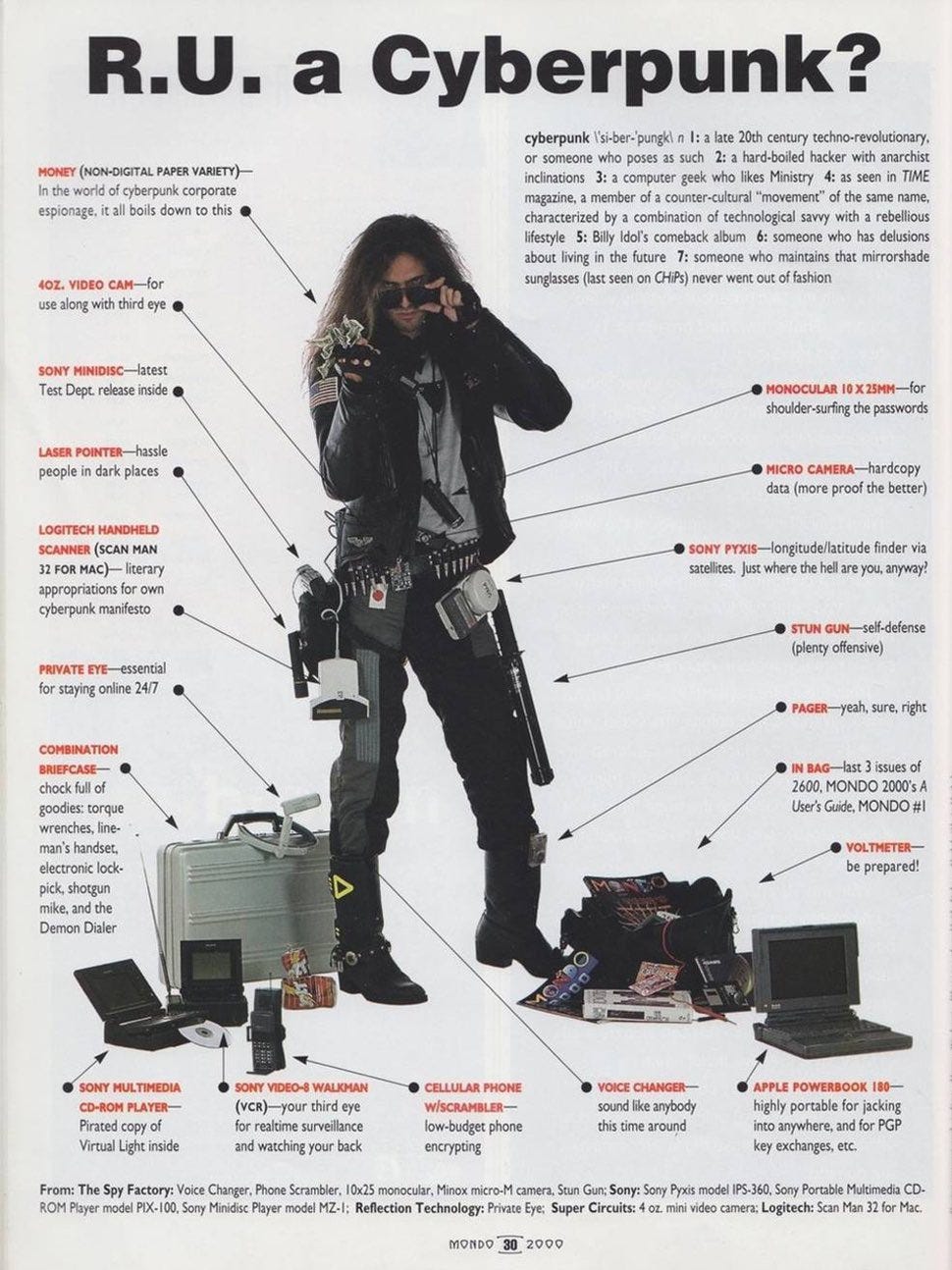Discarding Good Ideas in Search of Great Ones
This month 👾 Techno-Optimist Manifesto | 10+ Years of Losing on the Internet | Building a Home on the Web | The Musk Algorithm + loads more…
🆕 Personal Updates
This might be the last scheduled edition I’ll send for a while, depending on when our baby boy decides to arrive in December. In the meantime, it’s business as usual and this month’s issue is absolutely packed with fascinating content sourced from the internet.
Lastly, progress on my new project is…. slow. I’ve come to terms that it might not be ready this side of the year. Who knows, there might be something to share before Christmas.
Right, let’s get to it - time for this month’s roundup 👇
🔥 Top post last month: My solopreneur story: zero to $45K/mo in 2 years
📓 Articles
Discarding Good Ideas in Search of Great Ones
If you are familiar with the startup world, -1 to 0 probably brings to mind the idea of 0 to 1. That’s intentional. But 0 to 1 isn’t just a useful reference point for a new concept. Placing these numbers on the same line makes it clear that they bound distinct stages of the same effort. A rocket’s mission to space doesn’t start at the moment of launch. What happens before 0 is critical to what happens after, and sequence matters when building and launching a product. -1 to 0 is when you figure out what you want to work on next. Your goal at -1 is to tame the chaos of everything you could do into conviction in what you will do. The difference is conviction earned through a disciplined ideation process.
The -1 to 0 concept was recently coined by Ruchi Sanghvi in this great post discussing the problem her founder community is trying to solve.
…if 0 to 1 is about Product-Market Fit, -1 to 0 is about Founder-Market Fit. Figure out what you want to build before you try to build it.
This post sums up founder market fit in an easily digestible explanation and provides great examples as to why the -1 phase is even more important than the 1-0 phase.
🎁 Bonus content: Check out South Park Commons - a community of founders looking to start their next ventures.
The Techno-Optimist Manifesto
Many people are pessimistic about technology, and perhaps for good reason. Sentiment for technology seems like it’s progressively more negative, perhaps due to the breakneck speeds of AI advancements and its potential impact on society. However, technology is the driving force behind human progress and has enabled us to solve many big problems. Techno-optimists believe that free markets and constant technological growth are essential for a successful society. Marc Andreessen is one of those guys. His presence in the tech space is unprecedented and he's one of the most prolific investors founding A16z off the back of co-founding Netscape, where he created the first web browser. In this long-form essay, he outlines his optimistic manifesto for technology and its positive impact on a number of sectors. If you're in need of some optimism and inspiration give this a read.
🎁 Bonus content: Marc Andreessen sits down with David Perell (link). I expected to hear about his writing but left with a PhD in obscure Silicon Valley history.
Check out this markup of the manifesto. Someone has corrected the grammar and punctuation of the entire post here which actually makes it read much better.
10+ Years of Losing on the Internet
Jason Levin shares his experiences of starting various online projects over the past decade but giving up due to a lack of immediate success. Jason shares a bunch of great examples from creators who have repeatedly shown up, put the work in, launched and failed countless times before finding success.
Getting more reps, and building that compounded learning eventually pay off. We must push past the notion of instant gratification and assume we won’t achieve instant success. Patience and persistence are key to succeeding online.
This section of his post is a great reminder:
… remember, most people aren’t playing the great online game. They’re not trying to grow audiences and make money online. They are content posting an Instagram, getting their 32 likes, and moving on with their day.
So don’t be mad when people judge you, don’t like your shit, or make fun of you behind your back. Unless they’re creators, they are just online spectators
The Musk Algorithm
I have yet to read Walter Isaacson's biography of Elon Musk, however, from the reviews I’ve seen so far it’s a hit. David Heinemeier Hansson (aka DDH) founder of Basecamp, shared his favourite part of the book - the countless illustrations of how Musk applies his "algorithm". A methodology for shipping everything from electric cars to Mars rockets to flamethrowers to humanoid robots. The Musk "algorithm" involves questioning requirements, simplifying and optimizing, accelerating cycle time, and automating processes. These methodologies can be applicable to both your personal or professional work and company culture.
But do we need to lead Musk’s relentless work ethic and lifestyle to adopt these methodologies? Well, DDH suggests we can learn from Musk's success without trying to replicate his work style.
You can absolutely learn from people you wouldn't want to be. Extracting wisdom from Musk's success does not oblige you to become his disciple or his mirror.
Thank god for that!
🔗 Hyperlinks
My home office tour
It’s been exactly a year since we moved into our house and we’ve spent a lot of that time refurbishing our home office space. It’s almost finished, give or take a few small additions we are planning. Given we spend almost 20% of our lifetime working it’s important I have a space I enjoy spending time in if I’m working from home.
One publication I’ve been following for home office inspiration is Maker Stations. It’s a great resource for high-quality interviews with creators and makers, including a detailed breakdown of their home offices, desktop setups, and their hardware and software stacks. This month I was fortunate enough to be featured in Maker Stations after discovering ilya - the creator of the site was a reader of this newsletter.
🎁 Bonus content: Talking of home offices. If you are looking for some more inspiration, Leo recently launched This Home Office Doesn’t Exist - A collection of AI-generated home office designs.
The Anthology of Balaji
Ever wanted to sit across from Balaji and spend a few hours deep in conversation to absorb all of his biggest ideas? That’s exactly what this book feels like. From the author of The Almanack of Naval Ravikant, Eric Jorgenson has now wordsmithed his next book in the series - The Anthology of Balaji with Jack Butcher pouring in his design creativity and once again providing his distilled, simplistic illustrations.
Balaji is a fascinating entrepreneur, investor, and futurist. Unlike Naval, a lot of this thinking and content isn’t distilled and for me at least it can be challenging to unpack, however, from what I’ve read so far this book takes thousands of hours of his content and distils it into bit-sized chapters complete with fantastic illustration to envisage his thinking.
The book is entirely free in PDF format, or you can purchase the hardback or Kindle versions too.
Internet Artifacts
I’ve been waiting for months for Neil to launch his latest project after he shared teasers on X a while back. Internet Artifacts is a virtual museum of artefacts, some of which are screenshots and many of the sites are interactive. His chronological digital museum exhibit starts in 1977 with a map of ARPANET and ends in 2007 with a video of Steve Jobs announcing the iPhone. It’s a fantastic nostalgic rush discovering sites you visited over the years and how far the internet has come in such a short space of time. What’s your favourite artefact?
📱 Products
The IndieHacker RPG
Created by Fernando Pessagno, the IndieHackers RPG short game blends the charm of classic RPGs with the use of AI-driven dialogues all wrapped into an old Gameboy UI. It stands as a personal tribute to beloved RPGs he played in the past, while also playfully nodding to the indie hacking and entrepreneurs community.
HeyGen| AI Video Generator
I’m in the process of creating a new course and for the most part, I’ve all the content written. However, I’ve been dreading the thought of having to record a bunch of video content for the course curriculum. Firstly, I’m not the most confident in front of a camera talking to myself, it doesn't come naturally. Secondly, I don’t want to spend thousands on recording equipment. Thirdly, the editing is super time-consuming. So when I discovered HeyGen it blew my mind. I can simply create my Avatar, input my script and the video will be generated in minutes. Better still I can have it translated into 40+ languages. Tools like these will create huge opportunities for creators, allowing you to create high-quality content at scale for a fraction of the time and cost. I’m going to be experimenting with this in the coming weeks and will share my thoughts in the coming newsletters.
AI Emoji Generator
In just a few days as part of a side project Alex Christou, Jesse Sibley and Archie Edwards spun up this fantastic emoji generator tool using the Stable Diffusion XL model. It’s a super clean UI that allows you to jump straight in and mix your own personal emojis in seconds. Additionally, you can view some of the community-created emojis and download them as PNGs for free. I’m going to remix some and use them on my personal website and perhaps some content going forward.
👾 Friends of Creator Club
is an ex-private equity investor and mom of 2 young kids. She’s Founded and sold 2 micro SaaS both built-in public and currently building her third project - where she reverse engineers growth strategies by top indie makers, spending 20-40 hours on each edition. My personal favourite issue covering Pieter Levels.Beta Directory | Discover the latest tech products
This month’s latest early access beta products brought to you by Beta Directory are:
Deta: a new OS with you at the centre, putting you firmly in control.
AlignUI: a comprehensive design system for Figma.
Sidebar: Build your own personal board of directors.
🐽 Other links to consume
🔮 Flashback
This month I’ll leave you with this 1993 graphic created for the launch of the Mondo 2000 magazine depicting the quintessential requirements to be deemed a Cyberpunk.
Fun fact, the term Cyberpunk was coined in 1982 by writer Bruce Bethke. But what does it actually mean? well, cyberpunk is a science-fiction subgenre characterized by countercultural antiheroes trapped in a dehumanized, high-tech future. Any folk reading this newsletter identify as a cyberpunk?
That’s it for this month!
If you made it this far, hit reply or jump into the comments and tell me what you thought of this edition. Was this 🔥 or 🗑. I read every response 👀
🚀 Advertise on this newsletter to get in front of 8,000 monthly readers
💬 Need some advice on building products. Grab some time with me.
If you liked this and fancy some free goodies consider referring someone to the newsletter and get rewarded for doing so.
Until next the next issue,
Sam | @thisdickie 👨💻





